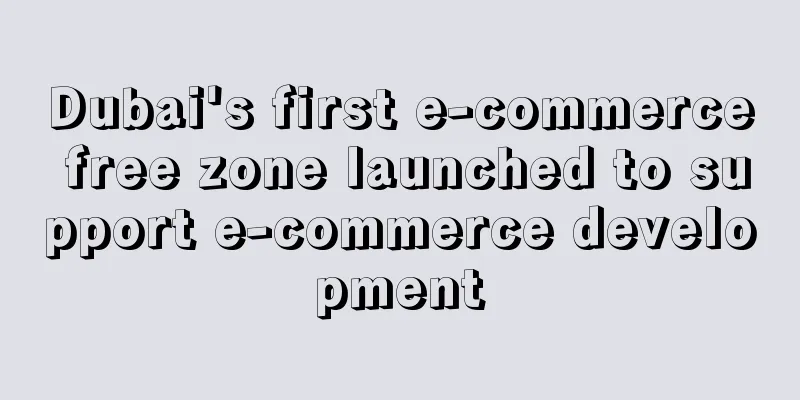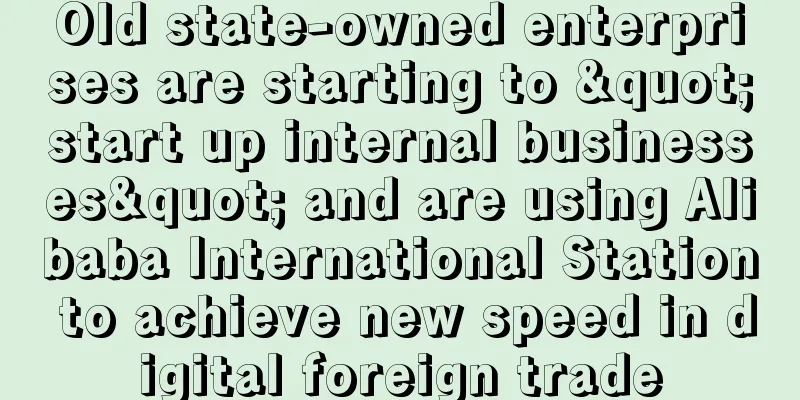Dubai's first e-commerce free zone launched to support e-commerce development

|
Dubai CommerCity (DCC), Dubai’s first e-commerce free zone, announced on the 18th that it has launched the first phase of the free zone, which includes 470,000 square feet of new facilities, including offices, e-commerce logistics units and multi-customer warehouses.
Located in Umm Ramor, Dubai, the project covers a total area of 2.1 million square feet. The AED 3.2 billion project is billed as the first dedicated e-commerce free zone in the Middle East, North Africa and South Asia region.
Divided into three main clusters – commercial, logistics and social, the free zone aims to attract global and regional manufacturers, distributors and global e-tailers while offering tax and investment incentives.
The first phase of the launch features more than 32 square feet of office space, as well as 14.5 square feet of e-commerce logistics and warehouse space. The latter will be managed and operated by Hellmann Worldwide Logistics and DHL.
Hellmann Global Logistics will provide end-to-end warehousing services such as order management systems and simplified customs clearance processes, and provide last-mile delivery services through DHL, directly from warehouses to consumers.
Dubai Commercial City has also signed a partnership agreement with website building platform Magento and digital consulting company Redbox Digital to provide a range of e-commerce services.
A statement from Dubai Commercial City said the free zone has so far leased more than 51% of its logistics warehouses to companies operating in different sectors, ranging from e-commerce, logistics and information technology to fashion, jewellery and electronics.
Mohammed Al Zarooni, Director General of Dubai Airport Freezone Authority (DAFZA), said: “The launch of the first phase of Dubai Commercial City is timely.” He added: “In the current global situation, facing the challenges brought by the COVID-19 pandemic, we urgently need to build a world-class e-commerce platform to attract professional companies who want to establish regional headquarters in Dubai and help them expand and develop their regional business to keep up with the significant growth of e-commerce.”
The global e-commerce industry is expected to grow by 16.6% between 2019 and 2022, while the Middle East, Africa, and South Asia region is expected to grow by 18.4%. The figures for the MENA and GCC regions are even higher, at 24.9% and 32.9%, respectively.
Sheikh Ahmed Bin Saeed Al Maktoum, Chairman of DAFZA , said: “The e-commerce sector is key and is expected to reach $148.5 billion by 2022. The GCC region is the fastest growing region in the e-commerce sector, with the UAE in second place, with a projected CAGR of 38.3 per cent. The UAE is also the fifth largest e-commerce market for B2C products sold in the Middle East, Africa and South Asia, valued at $4 billion.”
He added that UAE e-commerce businesses account for 6 percent of the list of the 100 largest e-commerce companies in the UAE MEASA region. middle East |
<<: Starting in May, sellers of watches on eBay will have to pay more
Recommend
What is CICC Payment? CICC Payment Review, Features
<span data-docs-delta="[[20,{"gallery"...
What is ZapERP Inventory? ZapERP Inventory Review, Features
ZapERP Inventory manages inventory across multiple...
Consumers’ purchasing behavior has changed, and these platforms are gaining popularity!
I believe that all sellers are familiar with Buy ...
Ulta Beauty's Q1 sales surged 65%, with a gratifying growth
Recently, Ulta Beauty, the largest beauty retaile...
Another case! A new coronavirus patient appeared at Hong Kong International Airport
It is understood that the Hong Kong Department of...
What is Sprinter? Sprinter Review, Features
Founded in 1995, Sprinter is one of Spain's l...
What is TruKKer? TruKKer Review, Features
<span data-docs-delta="[[20,{"gallery"...
A large number of top sales executives are leaving the company
The trend of former senior executives of large co...
What is Fetchr? Fetchr Review, Features
Fetchr is a smart logistics service company headq...
Shopify expands Pinterest social commerce channel to 27 new markets
According to foreign media reports, Shopify recen...
Wish Merchant Platform adds a new "Performance Overview" page, and India's Shopsy will launch a zero-commission model
Wish Merchant Platform adds a new “Performance Ov...
Selling $400,000 a day, independent website sellers should pay attention to these points when creating hot products...
On the afternoon of May 8, 2021 , Enen.com succes...
Amazon remains the cheapest e-commerce platform in the U.S. for five consecutive years
According to foreign media reports, the fifth ann...
What is TruBrain? TruBrain Review, Features
TruBrain , a Santa Monica, California startup, is...
What is Dacheng Tiansheng Appeal? Dacheng Tiansheng Appeal Review, Features
Dacheng Tiansheng Appeal is a one-stop appeal ser...









